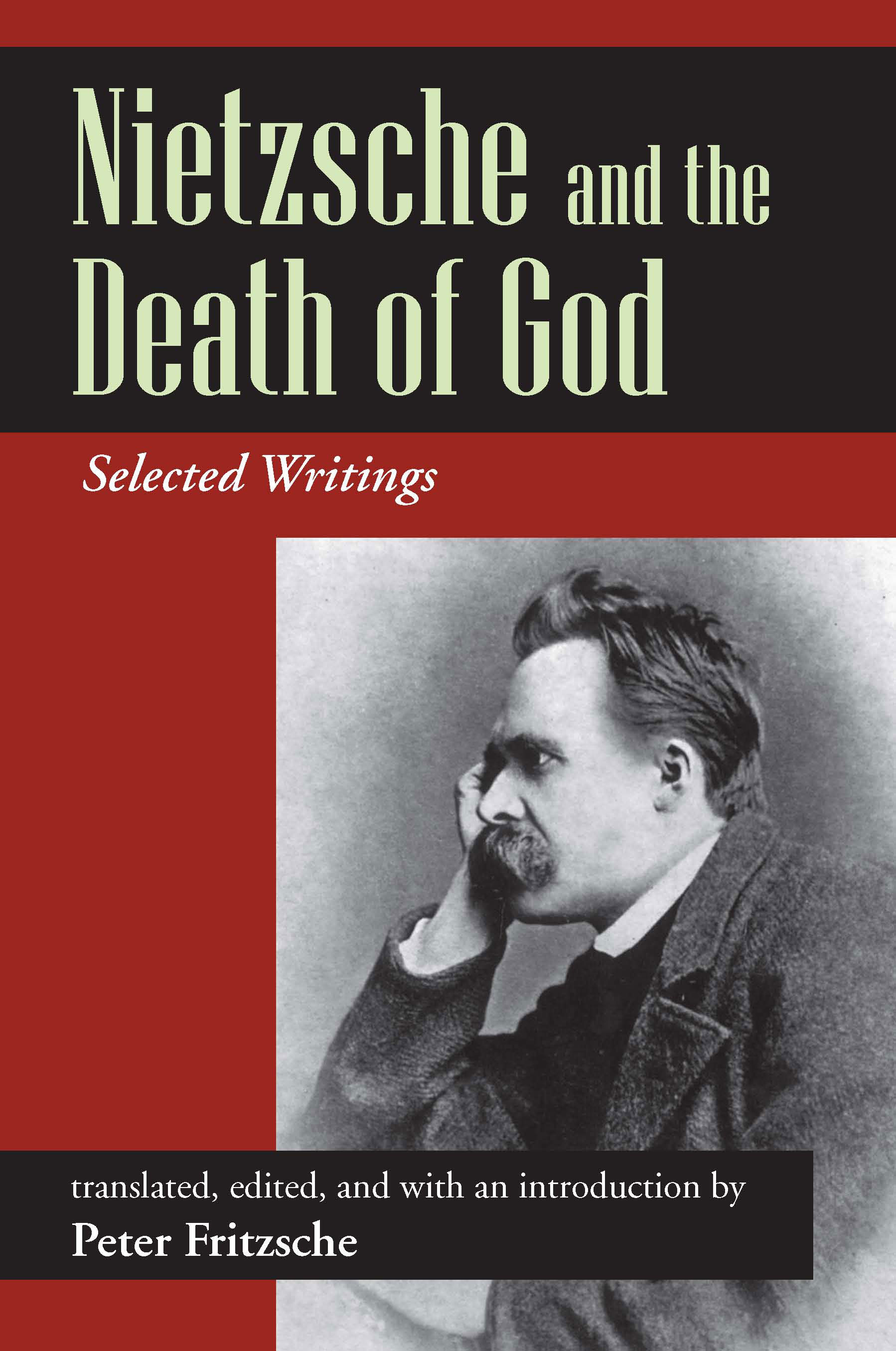"An impressive and, in many ways, original reading of Nietzsche as a prophet of freedom, experimentation, and self-invention. Peter Fritzsche has provided an excellent selection of texts and a compelling introduction, which highlight Nietzsche's continuing relevance for contemporary life and thought." - George S. Williamson, University of Alabama
"A tour de force of Nietzsche interpretation and explanation. . . . Professor Fritzsche has done the field a great service, setting forth the incomparable range of Nietzsche's ideas while giving students and instructors clear historical, biographical, and cultural guidelines for exploring it." - David B. Dennis, Loyola University, Chicago
"A useful collection for undergraduate teaching that brings together Nietzsche's most critical works with an excellent introduction that is helpful to nonspecialists and students alike." - Michele Strong, George Mason University

172 pages, $21.95 list
1-4786-1180-4
978-1-4786-1180-6
© 2007
paperback
eBook availability
Nietzsche and the Death of God
Selected Writings
A compact introduction to Nietzsche’s writings about God, language, truth, and myth, this collection will engage and appeal to both veteran and novice readers. Fritzsche’s insightful introduction presents valuable historical, biographical, and cultural guidelines for exploring Nietzsche’s ideas and influence, without ignoring his literary acumen. The samples of Nietzsche’s writing were carefully chosen to represent Nietzsche’s enduring relevance for contemporary life.
With “the death of God” as his starting point, Fritzsche selected and translated documents from the full range of Nietzsche’s explosive writings to expose readers to key ideas he developed. His bold concepts ignited reactions in his time and continue to energize and shape worldviews. Selections include Nietzsche’s thoughts on such topics as how humans have fallen into a subordinate relationship with systems of morality of their own making, and the importance of recognizing new possibilities; how different cultures and languages enable unique interpretations—that is, there is no common or real world; and how the “slave mentality” of the West inclines people to see each other as victims instead of masters of their own lives.
All of the documents feature notations about publication history and context for the readings that follow; gloss notes explain literary allusions, historical references, and unfamiliar terms; appendixes include a chronology of Nietzsche’s life, questions for consideration, and a bibliography of selected works by and about Nietzsche.
With “the death of God” as his starting point, Fritzsche selected and translated documents from the full range of Nietzsche’s explosive writings to expose readers to key ideas he developed. His bold concepts ignited reactions in his time and continue to energize and shape worldviews. Selections include Nietzsche’s thoughts on such topics as how humans have fallen into a subordinate relationship with systems of morality of their own making, and the importance of recognizing new possibilities; how different cultures and languages enable unique interpretations—that is, there is no common or real world; and how the “slave mentality” of the West inclines people to see each other as victims instead of masters of their own lives.
All of the documents feature notations about publication history and context for the readings that follow; gloss notes explain literary allusions, historical references, and unfamiliar terms; appendixes include a chronology of Nietzsche’s life, questions for consideration, and a bibliography of selected works by and about Nietzsche.
Reactions
Part One: INTRODUCTION: Nietzsche's Life and Works
Nietzsche's Importance / Nietzsche's Ideas / Nietzsche's Legacy
Part Two: THE DOCUMENTS
1. Aphorisms, 1875-1889
2. On Truths and Lies in an Extramoral Sense, 1873
3. On the Uses and Disadvantages of History for Life, 1874
4. Human, All Too Human, 1878
5. The Gay Science, 1882
6. Thus Spoke Zarathustra, 1883-1884
7. Beyond Good and Evil, 1886
8. On the Genealogy of Morals, 1887
Nietzsche's Importance / Nietzsche's Ideas / Nietzsche's Legacy
Part Two: THE DOCUMENTS
1. Aphorisms, 1875-1889
2. On Truths and Lies in an Extramoral Sense, 1873
3. On the Uses and Disadvantages of History for Life, 1874
4. Human, All Too Human, 1878
5. The Gay Science, 1882
6. Thus Spoke Zarathustra, 1883-1884
7. Beyond Good and Evil, 1886
8. On the Genealogy of Morals, 1887